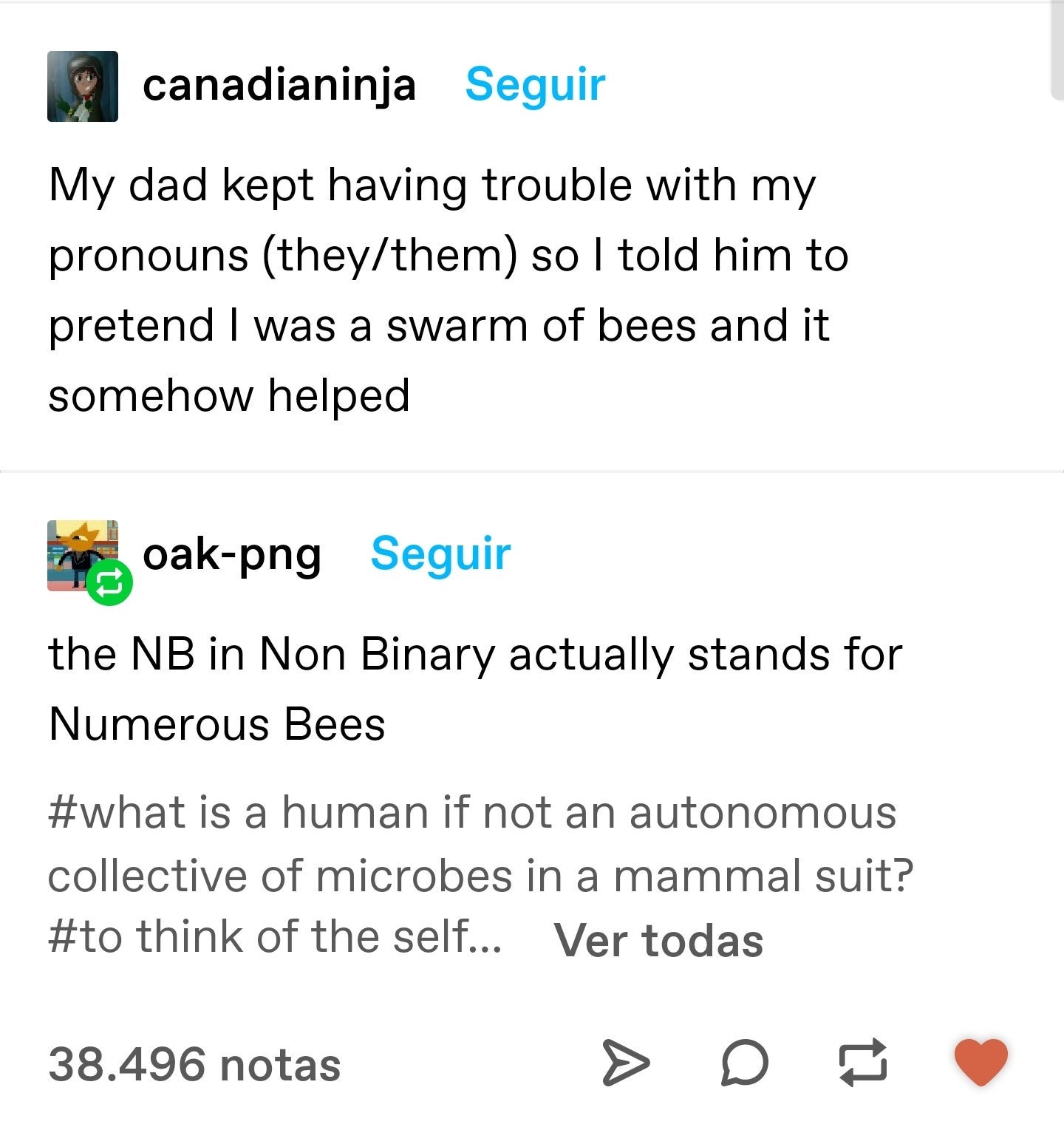this post was submitted on 14 Aug 2023
606 points (100.0% liked)
196
17981 readers
1658 users here now
Be sure to follow the rule before you head out.
Rule: You must post before you leave.
Other rules
Behavior rules:
- No bigotry (transphobia, racism, etc…)
- No genocide denial
- No support for authoritarian behaviour (incl. Tankies)
- No namecalling
- Accounts from lemmygrad.ml, threads.net, or hexbear.net are held to higher standards
- Other things seen as cleary bad
Posting rules:
- No AI generated content (DALL-E etc…)
- No advertisements
- No gore / violence
- Mutual aid posts are not allowed
NSFW: NSFW content is permitted but it must be tagged and have content warnings. Anything that doesn't adhere to this will be removed. Content warnings should be added like: [penis], [explicit description of sex]. Non-sexualized breasts of any gender are not considered inappropriate and therefore do not need to be blurred/tagged.
If you have any questions, feel free to contact us on our matrix channel or email.
Other 196's:
founded 2 years ago
MODERATORS
you are viewing a single comment's thread
view the rest of the comments
view the rest of the comments

After having multiple conversations with parents about their non-binary children, I have to admit that constantly using they/them gets confusing as hell. This parent has multiple children and I frequently couldn't tell if they were referring to their children collectively, or to the non-binary child individually.
Potential solutions:
Wait, what is the difference in pronunciation for θeɪ vs ðeɪ?
The same difference between "ether" and "either", or "thistle" and "this'll". Voiceless θ, voiced ð.
Isn't it the difference between the 'th' sound in they(ð) and through(θ)?
or that and thatch.
Oh I LOVE the last one.